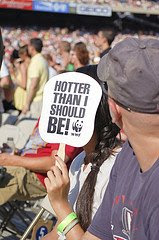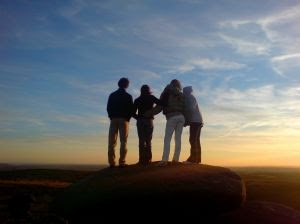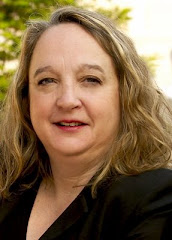The average conference participant (at a three day conference):Road Warrior, Doug Kennedy, shares some great tips about how hotel guests can minimize their environmental impact.
Produces 61 lbs of solid waste
Uses 846 gallons of water
The same person at home (for three days):
Produces 13.5 lbs of solid waste
Uses 258 gallons of water
Monday, April 28, 2008
Don't Leave Home Without It
Thursday, April 24, 2008
Meeting Industry Embraces Earth Day
In the upcoming week, I will be synthesizing this wealth of information (so you don’t have to) and posting it on my blog. Stay tuned!
First up--I want to congratulate ARAMARK for this week’s announcement…
Partnership to Promote Shift to Sustainable Seafood Announced. Industry leader commits to completing transition within 10 years.
The Monterey Bay Aquarium and ARAMARK have entered into a partnership under which ARAMARK commits to new practices that will guide its purchases of sustainable seafood for all operations across the US. ARAMARK is beginning immediately to shift its seafood purchases toward sustainable sources. The company will complete the transition by 2018.
ARAMARK’s US operations alone employ 180,000 people and serve tens of millions of consumers at businesses, universities, schools, sports and entertainment facilities, parks and other locations. “Being good environmental stewards is important to our employees, our customers and the communities in which we live and work,” said Robert Dennill, ARAMARK’s associate vice president for corporate social responsibility. “The expertise and knowledge we are able to gain from the Monterey Bay Aquarium will guide business practices and influence consumer behaviors, helping strengthen our commitment to the environment.”
As you know, ARAMARK is the exclusive caterer for many of the facilities used for meetings and events. Speaking for meeting planners around the country, “We applaud you!”
Monday, April 21, 2008
Every Day is Earth Day
Wednesday, April 16, 2008
What is in a Name?
Now words like “corporate responsibility”, "sustainable foods” and “carbon offsets” are being added to our meeting planning vocabulary at a fairly rapid rate. Yikes!
In response, we have just added a glossary to our website as a free resource.
http://www.meetingstrategiesworldwide.com/resources/glossary
We will continuously update the glossary as new words appear in the world of green meetings. Let us know if you have one to add as well.
What Do Women Want?
1) Women were early adopters of the environmental movement – just ask Rachel Carson, environmental pioneer. “Women traditionally have been responsible for the care and welfare of families, which makes them especially sensitive to the importance of clean air and safe water,” according to the Environmental Protection Agency, itself a legacy of Ms. Carson’s work.
Plus…
2) Women take the environment AND business very seriously. The Women’s Business Enterprise National Council recently surveyed 1,200 members and found that 71 percent are working to make their businesses greener. The survey also found that 60 percent are working to make their products greener.
Multiply this by the fact…
3) The majority of meeting planners are women. In 2007, MPI reported that two out of three members were women. This represents significant buying power in the meeting industry.
Equals…one huge opportunity to drive support for more environmentally responsible hotels, convention centers, transportation companies, caterers and exhibit contractors. The opportunity to increase business and to give us what we want--a way for our profession to make a difference in the health and lives of our loved ones—is tremendous.
Monday, April 14, 2008
Wash It or Toss It?
The Environmental Defense Fund provides the answer:
“Using 1,000 disposable plastic teaspoons consumes over 10 times more energy and natural resources than manufacturing one stainless steel teaspoon and washing it 1,000 times.”
Speaking of water efficiency, “virtual water” is now being measured. For instance, a cup of coffee uses 37 gallons of virtual water when you consider the amount of water used to grow, produce, package and ship the beans according to Joel Makower’s blog.
The next big question is how will this impact the meeting industry?
Thursday, April 10, 2008
One Fish, Two Fish…How Can I Choose Fish?
We recommend using a Seafood Watch pocket guide provided by Monterey Bay Aquarium to make choices based on supporting environmentally friendly fisheries and aquaculture operations. Their website http://www.mbayaq.org/cr/cr_seafoodwatch/sfw_aboutsfw.asp provides a wealth of information including how to order the guides for your use.
If you want to impress your clients and friends with your sustainable seafood knowledge (and don’t we all), here is a fun trick! Use the “Fish Phone”. Yes, just text 30644 on your cell phone, type in “fish” and then type in the type of fish you want to know about, say “albacore tuna” for example. A response will come back within a few moments and provide information to help you make a decision. Won’t you be the life of the party?
Monday, April 7, 2008
Hotter Than It Should Be

One year ago today, as members of the Live Earth Sustainability Expert Team, we were feverishly developing the “Green Guidelines for the Live Entertainment & Events Industry" for use in all eight concert venues. http://liveearth.org/docs/LEGreen_Guidelines_First_edition_final.pdf
Shortly thereafter, we began working to “green” the Giants Stadium venue in New Jersey for the 07/07/07 Live Earth Concert Series. The process was a bit like Jane Goodall meets The Sopranos. With a combination of education, resources, and sheer tenacity, we convinced the Giants Stadium management team, cleaning company, parking lot crew, multiple caterers, and union folks that three streams of waste--recyclables, compost and other waste--could be separated by the audience (with the help of 800 volunteers—at least until The Police came on stage—but that’s another story). The Stadium crew became enrolled in the process and were champions for the cause right along side our team.
Three short months later on a hot, humid Saturday, we were all standing on the 50 yard line among over 51,000 screaming fans with the task of bringing recycling and composting to the largest, most complicated concert ever to take place at the Stadium. And by the way, we were told, “Al Gore will be here.” No pressure.
Thanks to the efforts of thousands of people who made a real difference, we were able to divert 76% of the waste from the landfill to recycling or compost. A sweet success!
It is spring once again and time to green this summer’s outdoor events. Where to start? Use the guidelines, ask vendors and sponsors to partner with you, enroll the artists and audience, and prepare to be amazed!
Friday, April 4, 2008
What Goes On The Road...
When at home these US Adults report:
85% turn out the lights when leaving a room
67% regulate heating/cooling when not at home
60% recycle
60% turn off water while brushing teeth
59% use more energy efficient bulbs
53% take short showers
Seems reasonable for both economic and environmental reasons, right? So what happens when we leave home? How did we get the idea that hotel VIP guests require:
All the lights, radio and TV turned on when arriving in a hotel room
Their room ready and waiting at a constant 68 degrees
New sheets every day
Dual shower heads
And my personal favorite, a new bar of soap every time you leave the room ( I can’t even figure out how they sneak in there and change it so fast)?
If travelers don’t practice these things at home, why would they want to on the road? Additionally, we know that guests 25-39 years of age are more environmentally conscious than their older counterparts. It is time to ask what the new generation of guests think VIP service is. My guess? Free wireless internet!
Tuesday, April 1, 2008
The Power of One
“If just one passenger per each flight in the world this year packed one pound less of luggage, they would save enough fuel to fly a Boeing 737 around the world 474 times. “



